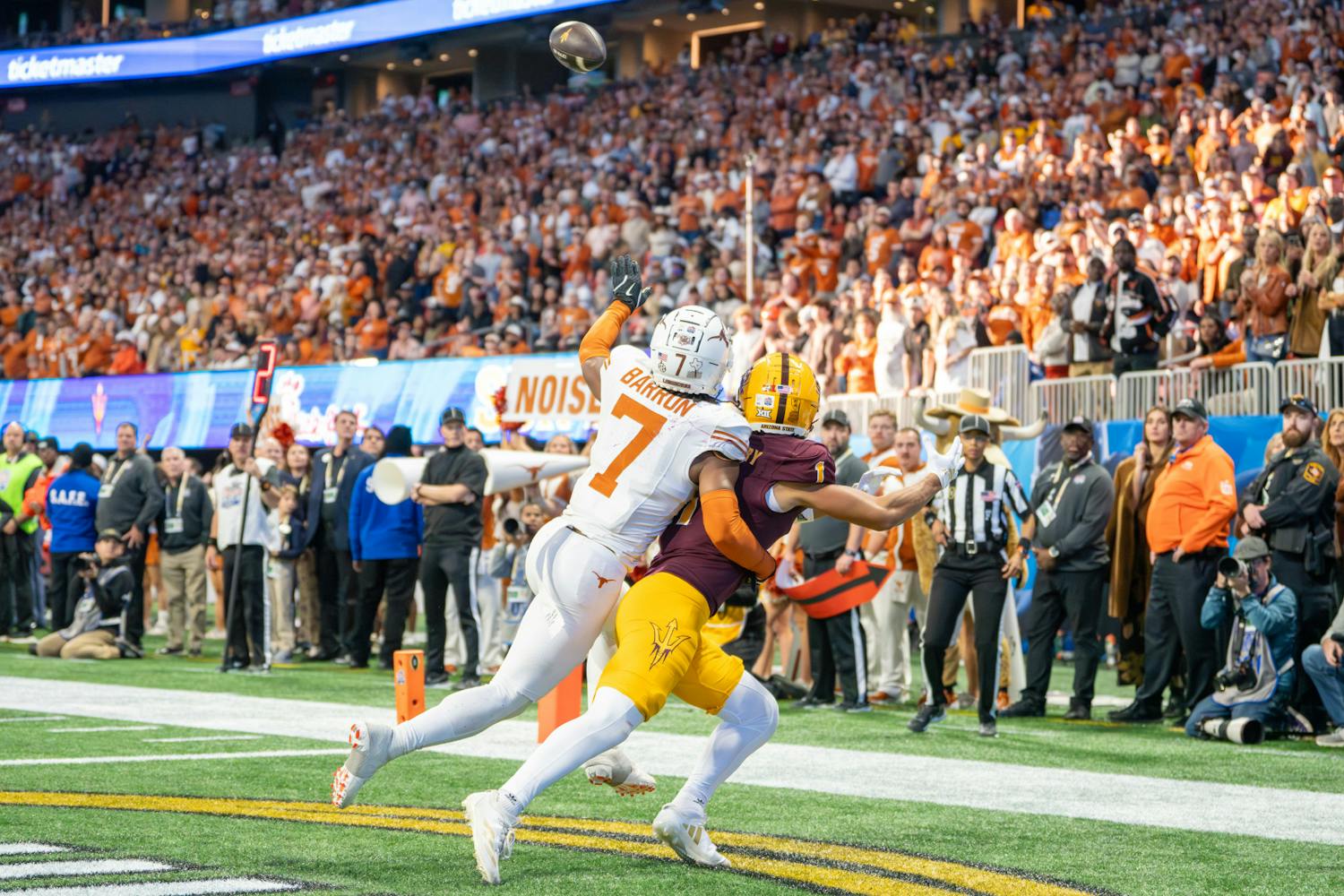While the end of the 2004 presidential race may prove to be a photo finish, ASU professors don't think the results will develop as quickly as a Polaroid snapshot.
With varying data from polls in key battleground states, the winner may not be named the day of the contest.
Bush leads Kerry 49 percent to 47 percent when registered voters were asked whom they would support in today's election, according to a national CNN, USA Today, Gallup poll conducted over the weekend.
Three percent of respondents remained undecided while 1 percent said they were supporting independent candidates. The poll had a sampling error of plus or minus three points.
ASU political science chair and professor Patrick Kenney said he doesn't expect a repeat of the previous contested presidential election, but he would not be surprised if there isn't a clear winner by Wednesday.
"The results may take a couple of days because in a race this close we will likely have to wait for all the precincts to report," Kenney said.
In addition, Kenney said most states have automatic recounts that are triggered by close elections.
"It may take some time to count the mail-in ballots and conduct the recounts," he added.
While Kenney expects that Arizona will remain in the Republican territory on election night, he did not rule out the possibility that students could affect the election because their votes are not accounted for and unpredictable.
"Any time a presidential race is this close, small pockets of people voting in disproportionate numbers can have an effect," Kenney said.
Political science senior Mallory Hutchison said this election might hinge on the proportion of registered voters who actually make it to the polls.
"If as many people who are registered to vote actually get out there it may help Kerry," Hutchison said.
Kenney said there may be reasons why that might be the case.
"Conventional wisdom has shown that because Democrats tend to vote less it will probably help them if the turnout increases," Kenney said.
Kenney believes the turnout in this presidential election would surpass a recent national high of 52 percent set in the 1992 contest.
Kenney said there is no definitive way to predict the outcome of the several controversial propositions on the Arizona ballot.
Proposition 200, which would require greater scrutiny of people's immigration status before they could be eligible for state benefits, has offended some groups.
Another highly contested measure is Proposition 400. Its opponents have aggressively advertised against the initiative that would redistribute transportation funds.
"There is quite a bit of falloff from the national races as many people don't vote on the propositions," he said.
Students offered mixed opinions on how quickly a president-elect would be determined.
Architecture junior Andre Truong said he expects the election will be clear-cut tonight. He added that younger voters might be more likely to vote than in the past.
"Young voters seem to care because many of the issues pertain to our age group," he said.
Electric engineering senior Karim Abdule-Rasheed also said he thinks a winner will be decided tonight but said the candidates would likely fight the decision if doubts exist about the results.
"If they challenge the results, it might cause people to lose interest in voting, but [candidates] will always appeal them," he said.
Hutchison, who is also the president of the political science honor society Pi Sigma Alpha, said she doesn't expect young voters will care about the propositions.
"Their outcome may be determined more by how they are framed on the ballot than anything else," Hutchinson said.
She added that although politics may seem fashionable for younger people because the issues affect them, no one could predict how young people will affect the race.
"It's impossible to predict how many young voters may actually show up," she said.
Reach the reporter at mark.saxon@asu.edu.



